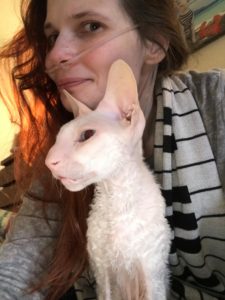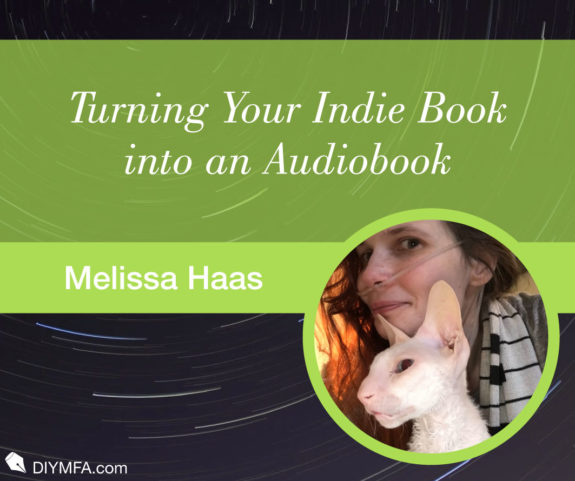You’ve written a book. You’ve published that book. People who don’t even know you have bought said book! That means it’s time to re-create it as an audiobook. Right?
How exactly does that happen, especially when you have a lean-to-zero budget? This article walks authors through the broad strokes of what they need to decide when embarking upon this next authorial step.
The Market for an Audiobook
I doubt that I need to mention how popular audiobooks have become.
The obvious catalyst behind this was the pandemic. We sought out new sources of stimulation while we were spending more time at home than ever before. However, as I’m sure you’d noticed from your pre-pandemic book club, commute, or surprisingly entertaining exercise sessions, stats show that audiobook usage was on the rise prior to Covid-19.
What might have been once considered a trend or novelty now has an assured place in the market, with sales projections forecasting steady growth over the next five years.
If you’ve ever wanted your words spoken dramatically into the minds of your readers, now is the time to start producing your own audiobook.
First Steps in Making an Audiobook
The most significant change in the field of audiobooks is analogous to print on demand (POD) publishing. With POD, a book isn’t printed until a reader orders it, thereby optimizing the entire process of publishing. No more piles of books destined for the clearance bin.
With audiobooks, companies have found a way to facilitate the initial investment an author or publisher would otherwise need to make. There are a couple of ways to do this, which you have to consider as project manager. The least expensive upfront way of going about this is to hire a pro narrator from a company’s resource pool and then split your royalties between author, narrator and distribution company when the audiobook is purchased.
Here one should note that you will be in cahoots with Findaway or Audible’s Audiobook Creators Exchange (ACX) for 7-10 years, but more about that later.
Often Overlooked
While most authors assume that money is the stumbling block keeping their projects from going audio, it is often insufficient time blocked out that becomes the downfall of many audiobooks-in-progress. As a rule of thumb, please take into consideration the fact that even a shorter work that takes about 2-3 hours listening time, can take 40-60 hours to actually produce, and that is when you know what you’re doing.
Now, I’m not trying to dissuade you from embarking on this project. I just wanted to give accurate time estimates so that you know what you’re getting into.
Plan your audiobook over the course of several months, the way that you wrote your manuscript, and definitely take advantage of those times of the year that are a bit slower for you and your family.
Please note that even for authors who have overseen every aspect of bringing their book into existence, from that first draft to cover creation and advertising, the audiobook end of things is traditionally regarded as more difficult and time-consuming than self-publishing a print or digital book.
OK, time is more of a factor than I’d thought. Now what?
The next thing to do is educate yourself about the differences between the major distribution companies, Findaway and ACX, and decide what is in your best interest.
Kindlepreneur’s recently updated article does a nice job of explaining how these two entities shake out in terms of practicality. If you would like a cursory comparison of smaller audiobook distribution companies, scroll to the bottom of the page here.
Traditionally, ACX is considered a more exclusive distributor, while Findaway has the potential to put audiobooks into the ears of a wider audience. Having said that, it is worth knowing that Audible accounts for 41% of the audiobook market.
So, decide what the goals for your audiobook are. Are you doing this mainly to add an additional source of income to your writing or are you thinking it would be more advantageous to grow your audience? Do you want to be able to sell your audiobook on your website? Are you doing it because you’ve found that audiobooks often add the elements that can’t be woven into a manuscript? Research accordingly.
Pro tip: You can distribute to Audible through Findaway. Several blogs have documented the advantages and how to go about finessing this.
The Money
The bottom line here is that you can produce a professional level audiobook book without investing any money up-front. If you or a friend (or perhaps your child) have podcast equipment and software, start here.
Otherwise, plan on budgeting about $2,000-$4,000 USD. All authors are highly encouraged to at least explore the possibility of having a narrator record your book. Voice actors are paid in price per finished hour (PPFH), which means that if a narrator charges $200/finished hour and the book you end up putting out into the marketplace spans 4.5 hours, then your narrator would receive $900. Remember that each finished hour has several hours of preparation behind it, even if you are narrating your own book.
Moreover, unless you want to learn how to work with new software, investigate and purchase new equipment, audio editing should be part of your basic budget. Certainly, if you’ve written a book, you can most likely learn these new skills. After all, you’re an author—you build worlds! The question is whether you want to take time away from your writing to learn these things.
Be forewarned that the audio quality must be rendered at a professional level, with regard to specific file formats, decibel levels, and file organization.
The Process In Action
If you’d like to see the process of recording a book in action, I’ve chosen Abbie Emmons to show you the behind the scenes work entailed. She and her sister, Kate, are both successful (yet very different) independent YA novelists. They are not only young professionals, doing what they can with the resources available, they are also great examples of how to approach what can be a wonderful career with all of the enthusiasm and humor that comes from a life spent creating, supplemented by lots of on-the-job-training.
Conclusion
Creating your own audiobooks has never been easier. However, that doesn’t mean the process itself is an easy one. There are many articles walking authors through the production process once one has decided on a distribution company.
The purpose of this article has been to elucidate how one goes about initiating that process and present considerations often overlooked in the many “going from text to audio” resources out there.
Remember, the important part of this process is the connection to the reader. At worst, you don’t want to ruin someone’s favorite book because of mediocre delivery. At best, you can give your reader an unforgettable experience that is absolutely priceless. After all, who hasn’t fallen in love with Frank McCourt reading Angela’s Ashes or been touched by Stephen King talking to you as if you’re personally enrolled in his On Writing class?
Tell us in the comments: What books have been given even more life by their audiobook performances?

Melissa Haas is the author and illustrator of Catula: The Misadventures of Dracula’s Cat and The Night Before Christmas (NOW WITH CATS), among others. Follow Catula’s whereabouts on Instagram @CatulaTheCat. If you’re interested in downloading free coloring pages or seeing Margaret Atwood with a blowtorch, check out her newly renovated website www.MelissaHaasCreates.com.







